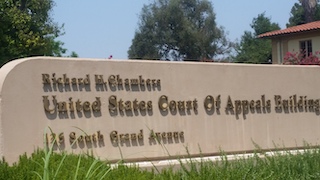In 1998, when Michael Paul Jessup was 17 years old, he and a friend kidnapped 79-year-old Frank Watkins in Arizona. Jessup and his friend forced Watkins into his pickup truck, took his personal property and drove him to a remote location.
Along the way, the stopped and picked up another companion. Once they arrived at the remote area, Jessup forced Watkins to walk to a ydrainage ditch and then shot him several times in the head and face, killing him. Police arrested Jessup about ten days later.
Brief Synopsis: Miller v. Alabama, a 2012 U.S. Supreme Court case is retroactive to cases involving juveniles sentenced to death or life without the possibility of parole. It requires a judge, before imposing such a sentence, to first consider the defendant’s particular youth-related mitigating factors.
A grand jury indicted Jessup on five counts, including first-degree murder. At the time, Arizona Revised Statute 13-703(A) listed three possible penalties for first-degree murder: (1) death; (2) “natural life,” Arizona’s term for life without the possibility of release (LWOP); and (3) life with the possibility of release (in some form, such as parole or commutation) after 25 years of imprisonment, or after 35 years of imprisonment if the victim was less than 15 years old. Ariz. Rev. Stat. § 13703(a) (1998).
Jessup and the prosecutor agreed to a plea bargain wherein Jessup pled guilty to first-degree murder and armed robbery and, in exchange, the prosecutor agreed not to seek the death penalty and to drop the other three charges.
At sentencing, the parties debated whether Jessup warranted a sentence of life without the possibility of parole (LWOP) or a sentence of life with the possibility of parole after 25 years.
Jessup’s attorney presented testimony of a psychologist who emphasized Jessup’s youth and aggregated emotional age of 12 or 13. Jessup’s age was not a cursory or tangential issue. The psychologist had examined numerous young people and his 24-page, single-spaced report by contextualizing Jessup’s youth to other youthful offenders. The report described Jessup as “immature” with “regard to impulse control.” The psychologist explained why Jessup was slow to mature and why he had a functional social level of about two-thirds his chronological age. The report also stated Jessup had “little foresight and even less capacity for reflection.”
 U.S. Ninth Circuit Court of Appeals Pasadena
U.S. Ninth Circuit Court of Appeals Pasadena
After much deliberation and weighing of mitigating and aggravating factors, the judge sentenced Jessup to “natural life,” meaning life without the possibility of parole (LWOP).
In 2012, in Miller v. Alabama (2012) 567 U.S. 460, the United States Supreme Court held that for a defendant who committed a crime as a juvenile, the Eighth Amendment permits a sentence of life without parole. However, before a sentencing judge can impose that harsh sentence on a juvenile offender, the juvenile offender must receive an individualized sentencing hearing during which the sentencer considers defendant’s youth and its attendant circumstances. Id., at 483.
In 2013, Jessup filed, in state court, a notice of postconviction relief, arguing that his sentence of life without the possibility of parole violated Miller. The state trial court assumed that Miller applied retroactively, but the judge denied relief on the ground that the sentencing judge had considered Jessup’s age and age-related characteristics.
On appeal, the Arizona Court of Appeals also denied relief. It explained that “[A]ssuming arguendo that Miller applies retroactively, Jessup has not shown an entitlement to relief. Miller prohibits mandatory life sentences without the possibility of parole for juvenile offenders. Jessup’s sentence to natural life was not mandatory. . . The superior court found Jessup’s age to be one of several mitigating factors. The court also heard from a psychologist regarding his presentence evaluation of Jessup as a juvenile offender.” The appellate court further noted that the sentencing judge considered that juvenile offenders do not have the same kind of judgment as adults.
The Arizona Supreme Court then summarily denied relief without comment.
Jessup then appealed up the federal ladder, appealing first to district court, in Michael Paul Jessup v. David Shinn, Director, Attorney General for the State of Arizona. The district court granted habeas relief and reversed and remanded, holding that the denial of relief was an unreasonable application of Miller.
The state then appealed up to the U.S. Ninth Circuit Court of Appeals in Phoenix, which reversed and remanded, finding the trial court’s imposition of life without the possibility of parole (LWOP) did not violate Miller because the sentencing judge performed an individualized assessment, considering Jessup’s age and the characteristics of young people.
We present this summary because it is not only a Ninth Circuit case and therefore applies to California, but because it shows how Miller’s sentencing rules can be found to have been followed even before Miller was decided.
The citation for the United States Court of Appeals for the Ninth Circuit ruling discussed above is Michael Paul Jessup v. David Shinn (9th Cir. 2022) 31 F. 4th 1262.
For more information about juvenile sentencing on life cases, please click on the following articles:
 U.S. Ninth Circuit Court of Appeals Pasadena
U.S. Ninth Circuit Court of Appeals Pasadena